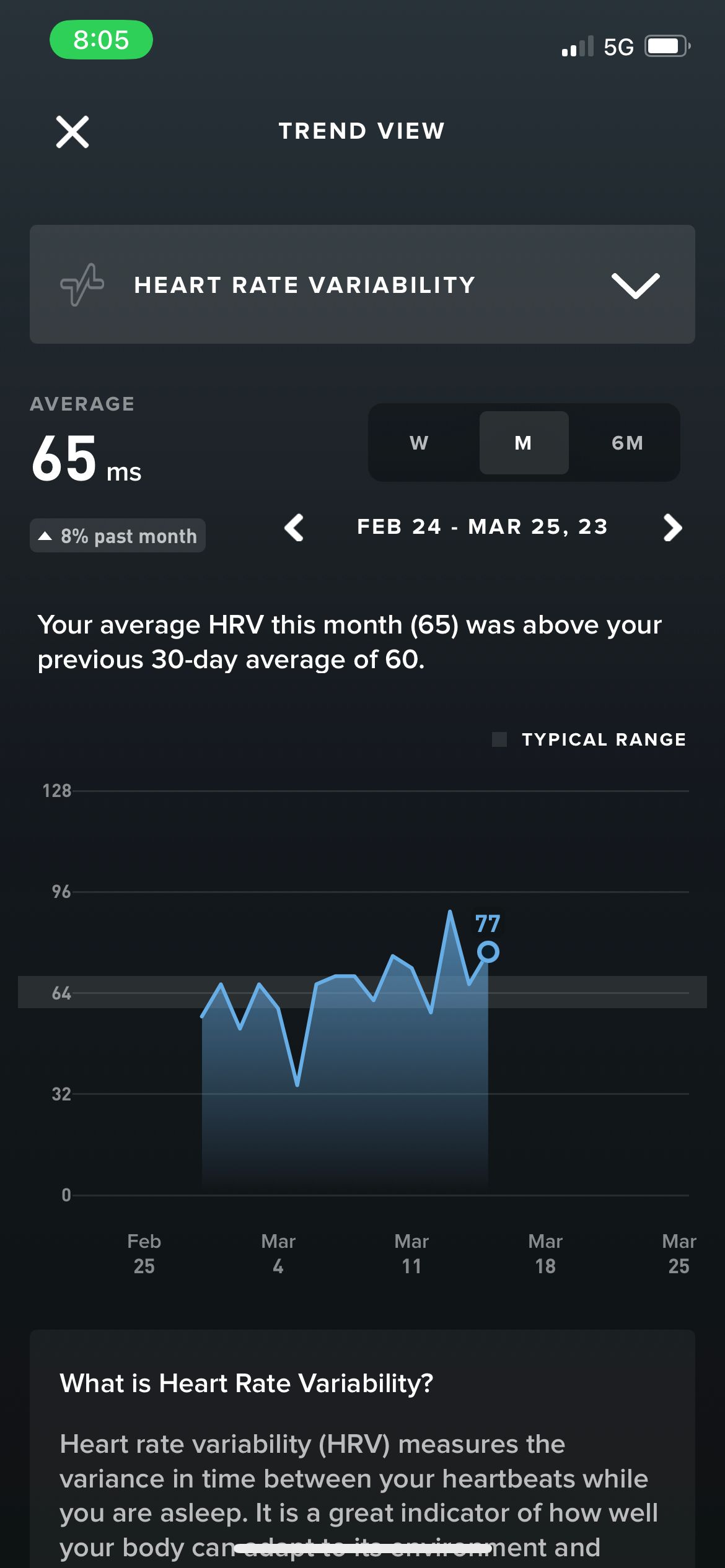Checking the Box is Not Enough: A new model for habits and performance

I've always been good at setting up habits. I'm lucky that this ability has come naturally in my wiring.
I can arrive at a decision to do something, then I just start doing it daily if that's what I choose.
Haven’t really tracked in awhile but just hit 371 blog posts published on the blog.
— David Sherry (@_brandswell) May 27, 2022
Feels like my writing is just starting...https://t.co/FbXK6aGc0N pic.twitter.com/TyrJZDSgVg
Solid 9 months on @futurefitapp
— David Sherry (@_brandswell) July 18, 2022
This has been a good addition to more consistent weight training.
You sign up and trainers send you workouts every week, each exercise has a video explainer, and it pairs with apple watch/airpods pic.twitter.com/1IEuX8wKmb
While this sounds like a superpower, it also has a curse. I don't have to be as strict about my habits because I know I can start and stop them as needed.
It also leads to stacking a lot of habits together, and then losing the reason for why I'm even doing them in the first place.
When "checking the box" of the habit becomes more important than being present in it and growing, things start to get stale.
The issue with checking the "box."
While it might feel great to have the binary "yes/no" of a habit being done each day, it's only step one.
If we're not careful, we will get stuck repeating certain habits without actually improving.
We're doing reps for reps sake, phoning it in, or just sticking to our baseline.
Progress that feels better than checking a box.
So, yes, I meditate daily.
But I started to notice that over time I was just doing this habit out of habit. It started to feel like I was just phoning it in.
There is a danger of fooling ourselves into thinking we're making progress when we're really not when we...
- Continue habits that no longer serve us
- Attend to habits unconsciously, we're no longer present for them
- Are beholden to the habit even if we don't really know why we're doing it.
- Check the box because other people said it's good for us to do.
What's the equivalent to a meditation practice but for the body?
— David Sherry (@_brandswell) November 19, 2022
As someone who's meditated daily for years I'm starting to realize/feel some limitations with the practice around body awareness.
It's also possible it's a signal to grow or change, or explore some new edge.
A new model for thinking about our habits; Base, Push, Recovery
The Base Phase
The base phase involves establishing a baseline for our performance. This is where we develop consistency and stability in our habits.
For instance, an Olympic athlete or a runner sets a baseline by running 10 miles every day. This represents the floor for their performance.
The nice thing about the base phase is it's your comfort zone once a habit is up and running.
Base = it's OK to allow this habit to 'merely' continue while I attend to other things in my life.
We can use baselines to keep a habit running without needing to "push it." This is strategically allowing less performance.
The Push Phase
The push phase is where we push beyond our current baseline to improve our performance.
This is where we re-engage with our habits to find our edge of discomfort.
This same runner might push themselves to go beyond their current level of ability by practicing more, lifting heavier weights, or running longer distances.
They do 20 miles a day instead of 10.
Push = It's time to improve performance and stretch myself in this habit.
When we "push" we raise the standard of our practice.
The Recovery Phase
This is a crucial phase in the habit-forming process. It helps us avoid burnout, and helps us integrate our practice.
The recovery phase is where we take time to rest and recover after pushing ourselves.
Recovery = It's time to quit, or stop this habit for a time (even if it's short, like 1 week or 1 day) to recover or see things from a new perspective.
Recovery itself is productive when it's on the other side of pushing yourself because it helps you integrate the new skill or awareness.
Using Moving Averages
The base-push-recovery model shifts us from thinking about habits as binary "yes or no" to moving averages.
A moving average is that you ran 10-miles 3 days, then 20 miles 2 days, then no miles for another 2 days.
You now have a distance or pace on average.
Thinking in yes/no terms is great for when you start out a habit, but once it's established, the variable we want to pursue is how to grow our baseline through pushing to new territories.
By tracking our progress through moving averages, we can see our progress more clearly beyond the binary "yes/no" of a habit.

Which habits are stale? Which habits could you go deeper with?
Not all habits need to be used as tools for particular performance. That said, I think it's fun to engage in something deeper. It's fun to push yourself in an area you enjoy to learn new skills or gain new awareness.
I like and enjoy meditation. It's just that it was beginning to lack a freshness due to how I was approaching it, which was doing it to check a box.
Going beyond checking the box is allowing me to engage and "push" in new areas until I hit a new baseline.
I'm curious what habits could use the same tune up for you?
As always, let me know how I can help,
xx David
Creative Caffeine Newsletter
Join the newsletter to receive the latest updates in your inbox.